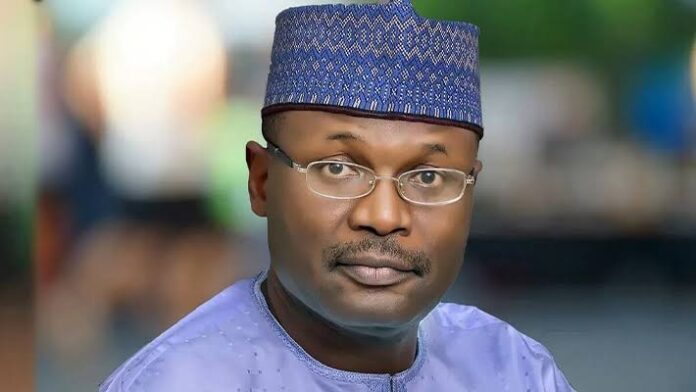A recent study conducted by the Electoral Hub has unveiled a significant exclusion of youth and persons with disabilities (PwDs) from Nigeria’s Electoral Management Bodies (EMBs) since their inception in 1958. The report, targeting policymakers, election practitioners, and civil society actors, highlights a concerning absence of commissioners with disabilities for the past 65 years, raising serious questions about the representation and consideration of disabled voters and candidates in electoral policymaking.
The study attributes this exclusion partly to the lack of legal mandates requiring the inclusion of PwDs in electoral bodies. However, it acknowledges some progress made under the current Independent National Electoral Commission (INEC) leadership of Mahmud Yakubu. Efforts by INEC to promote inclusivity include the introduction of a Framework on Access and Participation of Persons with Disabilities and the provision of special voting assistive materials such as magnifying glasses and braille guides.
Despite these strides, the report underscores a stark underrepresentation of youth within EMBs. Although constitutional amendments have lowered the minimum age requirements for chairmanship and commissionership positions, data from the study reveals that youth inclusion remains minimal. Notably, only one commissioner, Rose Okoh, appointed to the National Electoral Commission (NEC) after the June 12, 1993, election, was under 40 years old at the time of appointment. However, at 37, Okoh’s age still exceeded the youth category as defined by the National Youth Policy (2019-2023). Most electoral commissioners were found to be in their 60s, with a minority between 40 and 50 years old.
These findings prompt a call for deliberate efforts to incorporate both PwDs and youth into EMBs through policy instruments and affirmative actions. The history of Nigeria’s electoral bodies spans over six decades, beginning with the establishment of the Electoral Commission of Nigeria (ECN) in 1958 to conduct the 1959 elections. Post-independence, the Federal Electoral Commission (FEC) oversaw the 1964 and 1965 elections before being dissolved following the 1966 military coup. Subsequent decades witnessed the creation and dissolution of various electoral bodies, including the Federal Electoral Commission (FEDECO) in 1978, the National Electoral Commission (NEC) in the 1990s, and the short-lived National Electoral Commission of Nigeria (NECON) under General Sani Abacha’s regime.
The current INEC, established in 1998, has organized all elections since the transition to the Fourth Republic in 1999. Despite the extensive history and multiple iterations of these bodies, the Electoral Hub’s study found a persistent lack of representation for PwDs and youth.
The exclusion of these groups from Nigeria’s EMBs not only raises questions about the inclusivity and fairness of the electoral process but also suggests a broader issue of neglect in addressing the specific needs and rights of marginalized groups. The report from the Electoral Hub serves as a crucial reminder of the importance of diverse representation in governance structures to ensure that all segments of the population are fairly represented and their voices heard.
Moving forward, it is essential for Nigerian policymakers and stakeholders to consider these findings and take proactive measures to address the gaps in representation. This could include revising legal frameworks to mandate the inclusion of PwDs and youth in electoral bodies, implementing targeted recruitment and training programs, and fostering a culture of inclusivity within the political landscape. By doing so, Nigeria can work towards a more equitable and representative electoral system that truly reflects the diverse makeup of its population.


